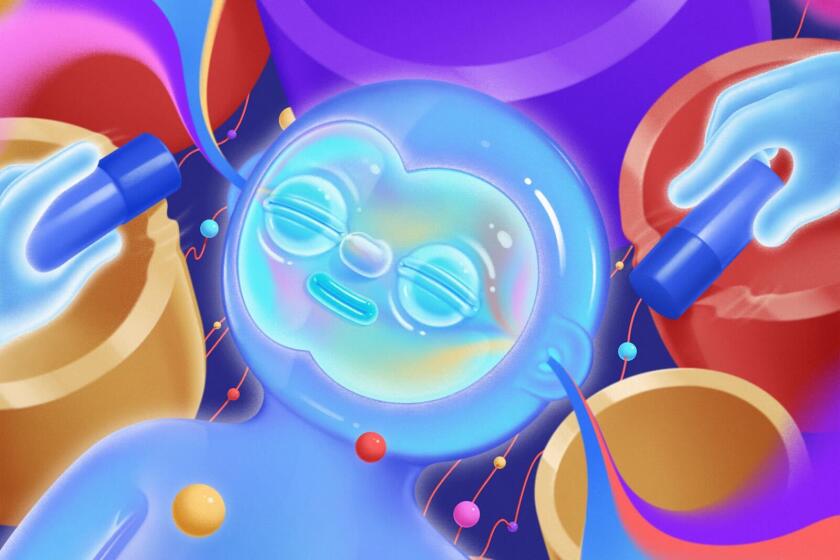‘Well Enough Alone’ by Jennifer Traig
Well Enough Alone
A Cultural History of My Hypochondria
Jennifer Traig
Riverhead Books: 258 pp., $23.95
By the end of “Devil in the Details,” Jennifer Traig’s 2004 memoir of her obsessive-compulsive childhood, she was liberated from the need to lather her hands raw, scrub surfaces clean of invisible contaminants and pray several hours a day. Her latest book, “Well Enough Alone,” picks up where she left off, her obsessive-compulsive disorder mostly under control. Then hypochondria kicks in.
Besides her real medical problems -- OCD, eczema, irritable bowel syndrome -- Traig suffers from a host of maladies for which medical tests can find no cause. Her true illness, apparently, is hypochondria. Once, she woke up with a horrific lip sore that she suspected she dreamed into being given that she didn’t have herpes. She has diagnosed herself with deep vein thrombosis, heart attacks and Lou Gehrig’s disease -- to name a few. Yet her pains are not theatrics. Hypochondriacs can suffer real physical symptoms without any underlying disease. Emotions and imagination become abscesses and aches in a sort of magical transmutation.
Traig often interprets illness as punishment for sin, perhaps due to her youthful obsessive-compulsive devotion to religious law (in her case, Jewish law). At one point, she experiences an excruciating flare-up of eczema on her face. Convinced a dermatologist would see it as the mark of Cain, she treats it herself, slathering on a thick layer of Vaseline. It sounds a little over the top, but it’s no crazier than feeling a bit of schadenfreude at a cheating ex with a sexually transmitted disease or a malicious bully who keels over with a heart attack. Our culture links sin with disease. Traig simply has the lunatic integrity to apply the same standards to herself.
More fascinating is the way in which illness works its fingers into her personality. Her eczema-ridden, relentlessly itchy hands give her a “grasping need to claim things.” And like her autoimmune system, she attacks her “own flesh and blood” -- her sister -- becoming an expert “in irritation.” As a college teaching assistant, she develops a physical tremor and decides to “shake things up” in class: a little “porn on the overhead” to distract students from her shaking hands. Personality is a collection of symptoms.
Ultimately for Traig, hypochondria becomes a creative pursuit in its own right -- as intimate as memoir and as “malleable” as fiction, in which the sufferer “can choose her ending, happy or sad.” She also makes illness seem funny. Her joie de vivre is delicious, even devilish (see her hypochondria haiku). It becomes clear that finding the ability to laugh is the point. After all, if the human imagination can conjure up honest-to-god lip sores, then we’d best learn to laugh when we whip out the Vaseline. *
Karrie Higgins is a writer based in Portland, Ore.
More to Read
Sign up for our L.A. Times Plants newsletter
At the start of each month, get a roundup of upcoming plant-related activities and events in Southern California, along with links to tips and articles you may have missed.
You may occasionally receive promotional content from the Los Angeles Times.






